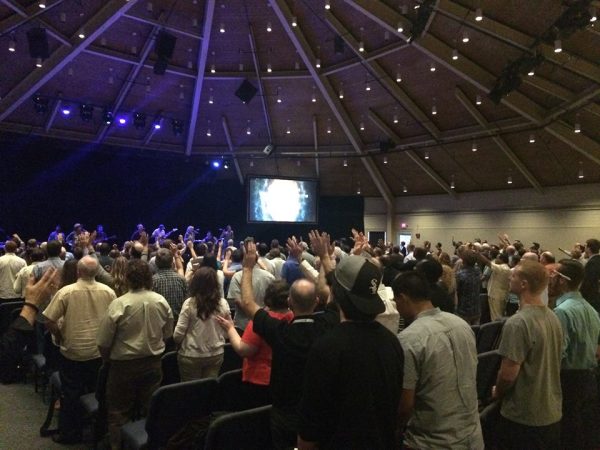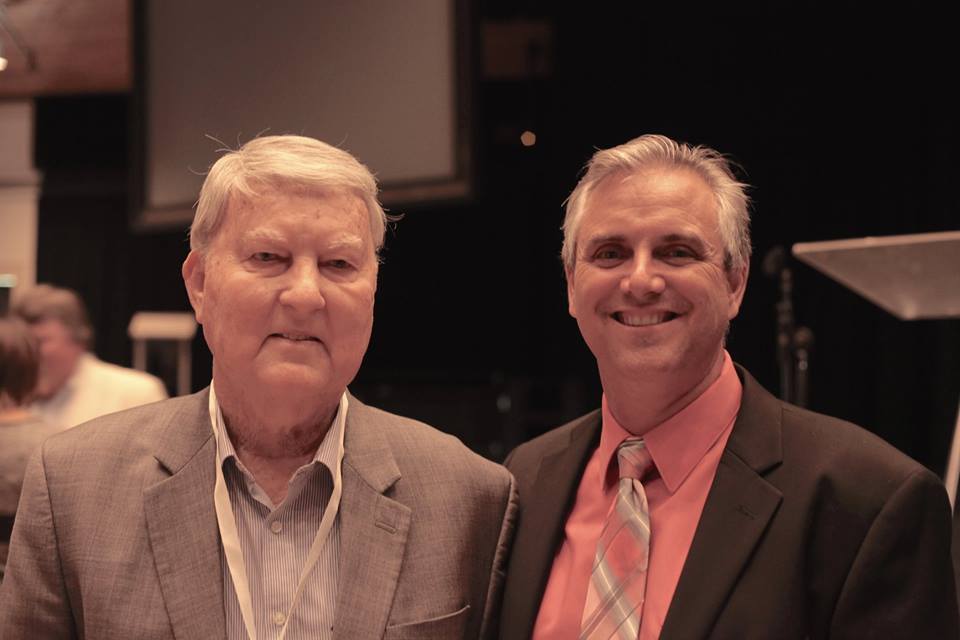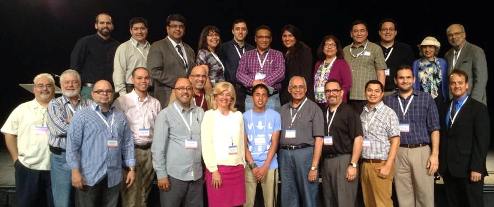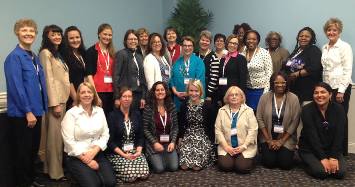Pentecostals and the World: Reflections on the 2015 Society for Pentecostal Studies Convention
I thank God who enabled me to participate in the 44th Annual Meeting for the Society for Pentecostal Studies held at Southeastern University, Lakeland, Florida, on March 12-14, 2015. This was my fourth consecutively attended SPS meeting, having attended my first in 2012. I find this simply miraculous, given that I live overseas in Southeast Asia. Given the considerable costs involved, for which I am grateful to so many people worldwide who helped me make this trip, I was and remain convinced that the Lord providentially orchestrated this for His global purposes. In this report on the 2015 SPS conference, I will first survey highlights from this event, and briefly describe what SPS is all about. I will then close by briefly sharing some personal reflections from my involvement with the past meeting.

Candy Gunther Brown speaking during the plenary session.
Meeting highlights

Pentecostal/charismatic scholars in worship.
This year’s meeting was themed, “Global Spirit: Pentecostals and the World.” Via plenary sessions, symposiums, panel discussions, and paper deliveries through the varied Interest Group sessions, I with more than 350 people from across the USA, Asia, Australia, Africa, Europe, and Canada, were gathered to explore, dialogue, and address relations between globalization, Pentecostalism worldwide, and the missional movements of the Holy Spirit throughout the global Church and world today. In doing so, we thus identified and conceptualized theological frameworks most conducive for both assessing the present transformation of world Christianity through global renewal movements, and envisioning directions of worldwide renewal over the coming decades.

SPS co-founder, Vinson Synan, and Ken Archer.
Founded in 1970, the Society for Pentecostal Studies (SPS) has grown into an international scholarly community comprising 500-plus members, who represent more than 60 theologically diverse church traditions and denominations and 190 institutions. Hence, while centered on Pentecostal and Charismatic studies, SPS has evolved into an effective ecumenical forum, which has enabled Pentecostals to participate in theological dialogues within or with other bodies such as the Faith and Order Commission of the National Council of Churches (USA), the Wesleyan Theological Society, the World Alliance of Reformed Churches, as well as with the Roman Catholic and Eastern Orthodox traditions.

The 2015 Latino delegation.
This year’s conference was graced by four plenary speakers whose respective deliveries provided complementary reflection on the themes of global Pentecostalism, globalization, and the transformation of world Christianity through charismatic renewal worldwide. First to note was Dr. Ivan Satyavrata’s opening plenary address titled, “‘The Wind Blows Where It Wills’: Celebrating the Spirit’s Free Movement in a World without Borders.” Dr Satyavrata leads the Assemblies of God church and its ministry networks in Kolkata, India, much of which was founded by the late Mark Buntain. Speaking for the Friday morning plenary session was Dr. Candy Gunther Brown, Professor of Religious Studies at Indiana University, USA, whose address was titled, “Healing and the Growth of Global Pentecostalism.”

The 2015 Women’s caucus.
The keynote conference speaker was Dr Allan Anderson, Professor of Mission and Pentecostal Studies at the University of Birmingham, United Kingdom. His address was titled, The Transformation of World Christianity: Challenges and Opportunities for Pentecostalism.” Anderson argued that the globalizing power of Pentecostalism is fuelled by an inherent tension it comprises, between a global charismatic, media-driven “meta-culture,” and a countervailing localization impulse that coupled with its supernatural worldview, makes Pentecostal spirituality naturally contextual with the common Majority Word holistic worldview, which perceives daily life as thoroughly pervaded with spiritual forces and realities.
Category: In Depth, Spring 2015


